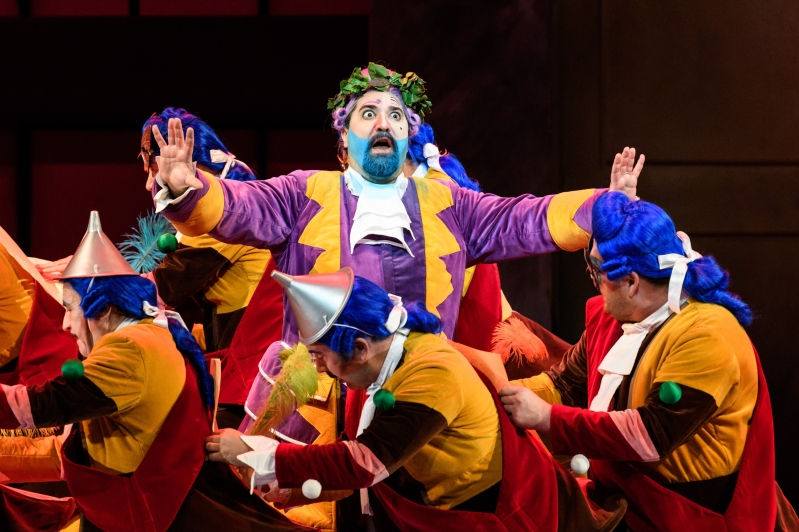
When focussing on the character roles in opera, it is common to automatically focus on the title roles, the leading ladies and main men and the trials and tribulations they face, but there are many operas where parents and parenting play a supporting role. These can go from the fairy tale staple of the evil step-mother, to the self-sacrificing mother or father who will do anything for their child. The stories may be fictional, but the dilemmas and misunderstanding underneath it all, are true to life.
In La Cenerentola, Rossini’s version of Cinderella, poor Cinders has to deal with her thoughtless step-father, who has his work cut out coping with her two high maintenance step-sisters. Another fairy tale inspired opera, Humperdinck’s Hansel & Gretel, features the duo’s mother and father only fleetingly. Mother is fed up that they have done so little work, her mood is not helped when they spill the milk, so she chases them out of the house. When Father appears, he is drunk but still concerned enough to fear for their safety with a witch in the woods. It is a timeless tale.
In La traviata, Rigoletto and War and Peace, loving fathers are portrayed as perhaps acting too quickly without thinking through the consequences – in Verdi’s La traviata, Georgio Germont tries to pay off courtesan Violetta to protect his son’s future. He fears the association with her will affect the family’s standing in society, so instead he causes heartache all round. Whereas in his Rigoletto, it is court jester Rigoletto who taunts other fathers but then finds himself with a daughter whose reputation is put at risk by the womanising Duke despite his best efforts to protect her – it is she who ends up paying the ultimate price at his hands. In War and Peace by Prokofiev, we have two fathers who feel they are doing the best – in their very different ways – for their children by ‘guiding’ them through life and the relationship quagmire with disastrous effect on their offspring’s well-being.


In The Barber of Seville and The Marriage of Figaro, parents – both actual and those who are guardians to their young wards – always seem to have their own best interests at heart and not those of their charges, adding to the comic elements of the operas in countless, farcical ways reminiscent of pantomimes. Then of course, there’s Peter Pan, where the parents seem so wonderful, but the children all fly off to Neverland anyway where there are no parents. Yet so many of the Lost Boys lament the lack of parental love and care… A story, and an opera, that for once has a happy family ending.
In Mozart’s The Magic Flute, we meet one of Pamina’s parents – the mysterious Queen of the Night – she doesn’t appear to be that maternal, but is that just due to the position she finds herself in? Whereas in Puccini’s Madam Butterfly there is perhaps the most devasting of all outcomes when Cio-Cio-San makes the ultimate sacrifice to ensure her child’s ‘freedom’. In Jenůfa, Janáček portrays both a loving new mother and a seemingly hard-hearted step-mother who, though misguided, believes she is acting in the best-interests of her step-daughter – love and families, they make us do strange things.



